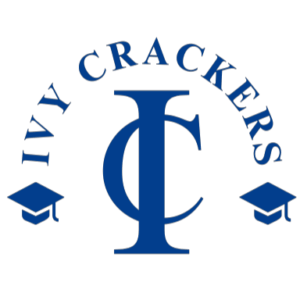Pros and Cons: One-Year vs. Two-Year MBA Programs in India
In the rapidly evolving landscape of business education, India has emerged as a prominent hub for aspiring business leaders, providing a plethora of MBA programs tailored to cater to different career aspirations and timelines. With so many options available, it is essential for students from India and the US to carefully weigh the pros and cons of different MBA programs before making an informed decision that is best suited to their professional goals and personal circumstances.
In this context, understanding the differences between one-year and two-year MBA programs become crucial. These programs offer diverse learning experiences, unique career opportunities and come with their set of advantages and limitations.

Understanding One-Year MBA Programs
One-year MBA programs in India cater to the needs of mid to senior-level professionals who are seeking to enhance their careers without taking too long of a break from work. Such programs are intensive, full-time courses that provide a fast-tracked, yet rigorous curriculum. These programs have been designed by renowned schools such as the Indian School of Business (ISB), IIM Ahmedabad (PGPX), and IIM Bangalore (EPGP) – all aimed at covering essential business management concepts in a condensed timeframe.
When it comes to pursuing a One-year MBA in India, students can expect a comprehensive curriculum that is specifically tailored to meet the needs of working professionals who want to upgrade their skill set, knowledge base, and expand their network. The programs offer a fast-paced, highly focused learning experience that delivers profound insights into business administration, finance, marketing, strategy, and leadership roles in the corporate world.
Pros of One-Year MBA:
- Efficiency and Time-Saving: The greatest and most noteworthy advantage to pursuing an MBA in one year is undoubtedly its duration. By completing all required coursework and exams in a shorter timeline, students are able to return to the job market in a more expedient manner than would be possible with a traditional two-year program. This option is particularly appealing to busy professionals who are eager to advance their careers and/or further their education without sacrificing too much time away from work or other responsibilities.
- Intensive Learning: Designed for immediate impact, and tailored to attract experienced professionals, the comprehensive one-year MBA programs create an unparalleled learning environment. With a curriculum designed to be more rigorous and intensive, participants are presented with the opportunity for a deeper level of education and skill development that will propel them forward in their careers. These programs are specially crafted to provide high-quality education that meets the demands of the ever-changing global business landscape, allowing participants to develop key competencies and stay ahead of the competition.
- Broadened Perspectives: The condensed nature of the program does not hinder the depth of learning from peers, as the interactions are intense and frequent. Students have the opportunity to learn about different industries and business practices directly from their peers who have firsthand experience. This cross-industry knowledge sharing can be particularly beneficial for those looking to switch careers or enhance their understanding of global business trends. Also, such interactions can lead to innovative ideas and collaborations that extend beyond the MBA program.
- Quality Networking: Networking in a one-year MBA program may seem rushed due to the shorter duration, but the quality of interactions often compensates for this. The professional maturity of the cohort means that networking is more strategic and meaningful, with many students capable of leveraging these relationships immediately in their professional lives.
Cons of One-Year MBA
- Rigorous Pace: The one-year MBA programs demand a significant level of commitment and dedication that often leads to a busy and hectic schedule with limited to no breaks. This can be quite stressful and exhausting, especially for those who are not used to this kind of intense and rigorous academic program. The increased workload and the pressure to perform at a high level can take a toll on one’s physical and mental well-being, which is why it is important to approach the program with a positive mindset and a willingness to persevere.
- Expensive: One-year MBA programs are highly condensed and intensive. They pack a comprehensive curriculum that typically spans two years into one year. This means more resources, such as faculty, guest lecturers, and administrative support, are concentrated in a shorter timeframe. The increased resource allocation can drive up the costs, which are then passed on to the students in the form of higher tuition fees. The infrastructure and support services provided to students in one-year programs are often equivalent to those provided in two-year programs, but their costs need to be amortized over a shorter period. This includes access to career services, alumni networks, and extracurricular activities, which are crucial parts of the MBA experience.
- No summer internship: Students in one-year MBA programs usually bring an average of 5 to 8 years of work experience. This level of experience means that most participants already have substantial exposure to corporate environments and a clear understanding of their career trajectories. They often pursue an MBA to accelerate or pivot their career path strategically, rather than explore new fields. Also, many one-year programs include capstone projects or live consulting assignments with real companies. These projects provide practical, hands-on experience that is directly applicable to their careers, offering an alternative to traditional internships. Hence, summer internships are not part of the one-year MBA programs.
Understanding Two-Year MBA Programs
Two-year MBA programs, such as those offered by prestigious institutions like IIMs XLRI, SP Jain and others, embody the more traditional approach to business education, providing a broad and comprehensive foundation in business management. These programs are meticulously structured to cover a wide range of core subjects like finance, marketing, operations, and human resources, along with an expansive selection of elective courses. This allows students to tailor their education to their specific interests and career aspirations.
For individuals early in their careers or those who are seeking a major career shift, two-year MBA programs can be particularly appealing. These programs offer a balanced mix of theoretical and practical knowledge, which can help students develop a deep understanding of the business landscape. As a result, graduates of these programs are well-equipped to take on leadership roles in a variety of industries.
- In-depth Learning: Over the course of two years, students have the opportunity to immerse themselves thoroughly in the core areas of business management, from strategic analysis to operational tactics and from financial acumen to marketing creativity. This extended timeframe is not merely about covering more topics; it allows for a deeper exploration of each subject, enabling students to grasp complex concepts and methodologies at a foundational level.
- Summer Internships: A two-year MBA program is distinctively structured to include internships as a core component of the curriculum, providing a practical framework within which students can apply the theories and skills learned in the classroom. These internships typically occur during the summer break between the first and second years and are designed to offer students a hands-on, immersive experience in the business world. The value of these internships extends beyond mere exposure; they are a crucial stepping stone to full-time employment.
- Networking Opportunities: Two-year MBA programs provide an invaluable opportunity for students to develop a strong and extensive professional network. This extended time frame allows for ample opportunities to connect with key individuals in the business world, including industry leaders, alumni, peers, and mentors, who can provide invaluable guidance and support throughout one’s career. Building a robust network of contacts and resources is essential for success in today’s highly competitive job market, and a two-year MBA program provides the time and resources needed to achieve this goal. By taking advantage of the diverse range of networking opportunities available throughout the program, students can build lifelong connections that will help propel their careers forward.
- Personal Development: In two-year MBA programs, students not only gain a deep understanding of business concepts and theories, but they also have ample time to hone their leadership and interpersonal skills, which are absolutely crucial for success in managerial roles. With the extended duration of the program, students have the opportunity to participate in various extracurricular activities, such as case competitions, industry-focused workshops, and leadership conferences, that provide real-world experience and enhance their soft skills. Moreover, the longer program also allows for more chances to network with peers, faculty, and industry professionals, which can lead to valuable connections and potential career opportunities.
Cons of Two-Year MBA Programs
- Opportunity Cost: In an intensive two-year MBA program, taking a hiatus from the workforce for a period of two years can often come with a significant cost, particularly for those who have already made a name for themselves in their respective careers. Without a steady stream of income and professional development opportunities during this period, individuals may risk losing valuable ground in the competitive world of business.
- ROI Concerns: While pursuing an MBA degree can undoubtedly offer great returns on investment, it is crucial to acknowledge that the financial commitment and time investment required in a two-year program can be quite daunting for many prospective students. With that said, it is worth noting that graduates of two-year programs may take longer to recoup their investment when compared to their counterparts who opt for shorter, more condensed courses. Furthermore, the returns on investment can vary significantly based on several factors, including but not limited to the job market, the reputation of the institution offering the program, and the specific industry in which a graduate secures employment.
Conclusion
Choosing between a one-year and a two-year MBA program can be a tough decision. Factors like personal finances, current work situation, and professional aspirations should be carefully considered before making a choice. A well-thought-out decision can significantly impact an individual’s future, so it is imperative to invest time and effort in examining all the available options and making an informed decision for a better tomorrow.
How can IvyCrackers help you?
When it comes to making informed decisions about an MBA program, there is often no substitute for firsthand knowledge and advice from those who have been through similar experiences. That’s why we, at IvyCrackers, firmly believe that one of the best ways to gain valuable insights about a particular MBA program or university is to interact with current students and alumni of that very university
Connecting with them can give you a more comprehensive understanding of what it is be part of that university, both in terms of coursework and extracurricular activities, as well as the kind of career options that may be available after graduation. Our “Mentor Session” initiative is designed to help facilitate these connections by pairing you with members of our community who can share their personal experiences and perspectives with you.

Our team of mentors, at IvyCrackers, has been passionately dedicated to helping countless candidates achieve their academic and professional goals. We have worked tirelessly to provide comprehensive services that are tailored to your specific needs, including refining your application essays, conducting mock interviews, perfecting your resumes, and strengthening your profiles. Our commitment to excellence is reflected in the success stories we have helped create, with our clients consistently achieving remarkable feats in their chosen fields.
We believe that everyone has the potential to excel, and we are here to help you unlock that potential. So why not head over to our ‘Mentors’ section now and discover how we can help you fulfill your dreams today?
Visit our Youtube Channel, Linkedin or Instagram Page for regular updates!


